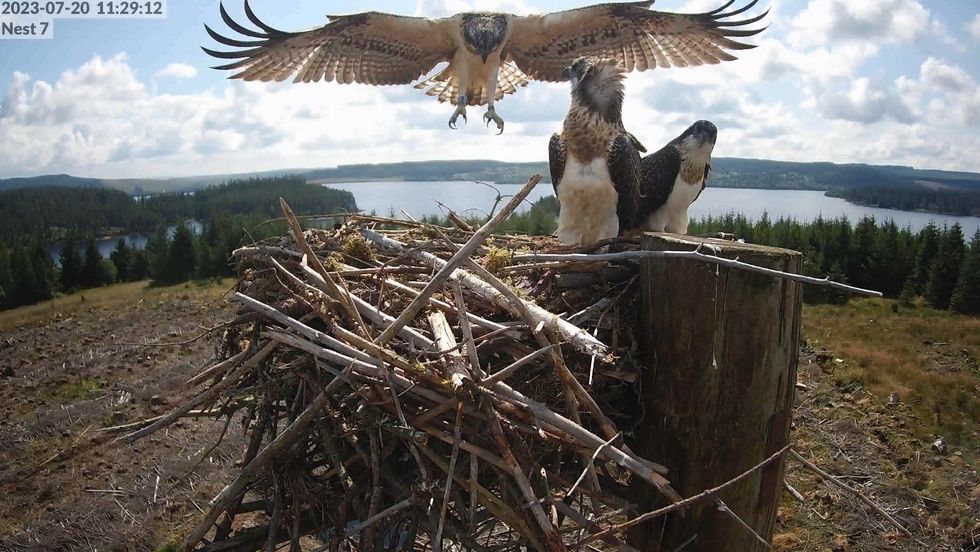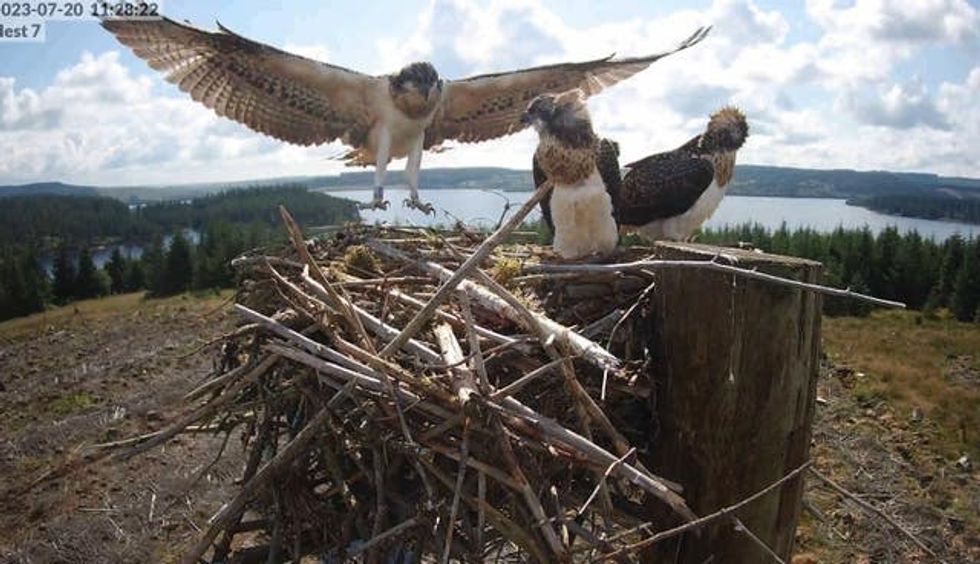Tom Wilkinson
Aug 16, 2023

Gilsland the osprey lands after making her first flight at Kielder Forest (Kielder Water and Forest Park/PA)
Pictures have been released showing the last of this year’s osprey chicks taking flight at the northern stronghold of the bird of prey.
A total of 11 chicks born by Kielder Water, in Northumberland, have fledged, Forestry England experts said.
Recent wet weather delayed the birds from making their first flight.
The video, taken from a nest camera, shows Gilsland take to the skies for the first time, watched by two of her siblings who track her progress as she makes a 30-second circuit of the nest.
It’s amazingly satisfying seeing them take to the air and do a circuit of their tree-top nest
Joanna Dailey
The endangered bird first bred in the 63,000-hectare forest in 2009 after a gap of at least two centuries.
The Osprey Project at the forest has now seen a remarkable 114 chicks fledge over 15 consecutive years of breeding.
Joanna Dailey, osprey co-ordinator with Forestry England, said: “It’s a big boost to conservation efforts given that the species was extinct in England for almost all of the 20th century.
“Because we have high-definition cameras on many of the nests we can follow the story as chicks pluck up courage to take their first flight.
“Tell-tale signs include wings being energetically flapped and hovering.
“It’s amazingly satisfying seeing them take to the air and do a circuit of their tree-top nest.”

Once they have made their first flight, the youngsters will be taught to hunt by their attentive parents.
They need to get stronger and build enough body fat within weeks before they begin a 3,000-mile journey to sub-Saharan Africa.
Duncan Hutt, director of conservation at Northumberland Wildlife Trust, added: “It’s no accident ospreys have returned to Northumberland in such strength.
“It’s the result of long-term planning, teamwork and sensitive habitat management.
“It’s a magnificent bird which is back where it belongs.”
Top 100
The Conversation (0)













